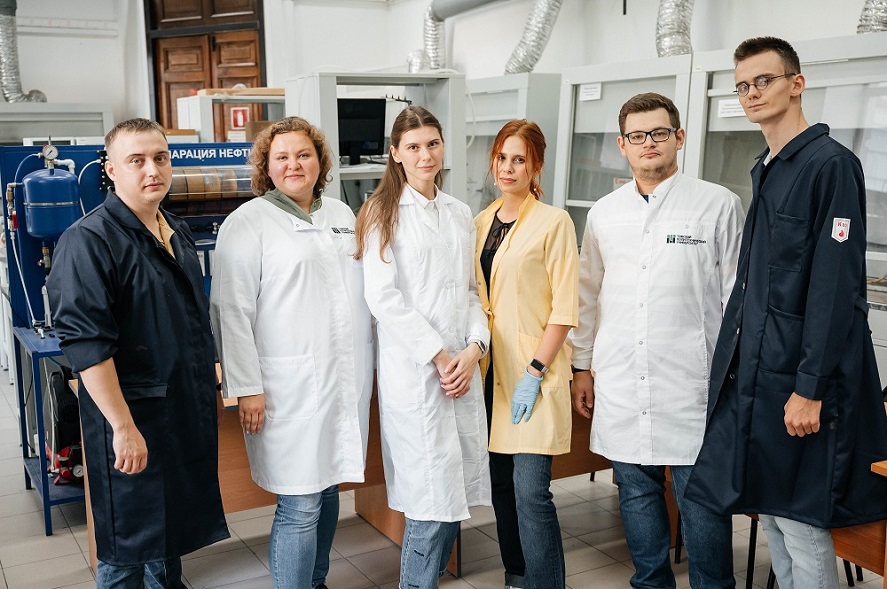TPU’s News Service continues writing about the university's scientific teams. This time the floor is given to Maria Kirgina, the leader of one of the youngest and brightest teams.
About the possibilities that are always there
There is no good or bad time to do science. If you have the right mindset, if you are driven by the will to develop, learn and invent something new, science is always interesting and promising. This has become especially true in the last two years - due to the new scientific and technological gaps that need to be closed. This situation scares some people. For our team, new tasks and challenges are just another incentive to move forward.
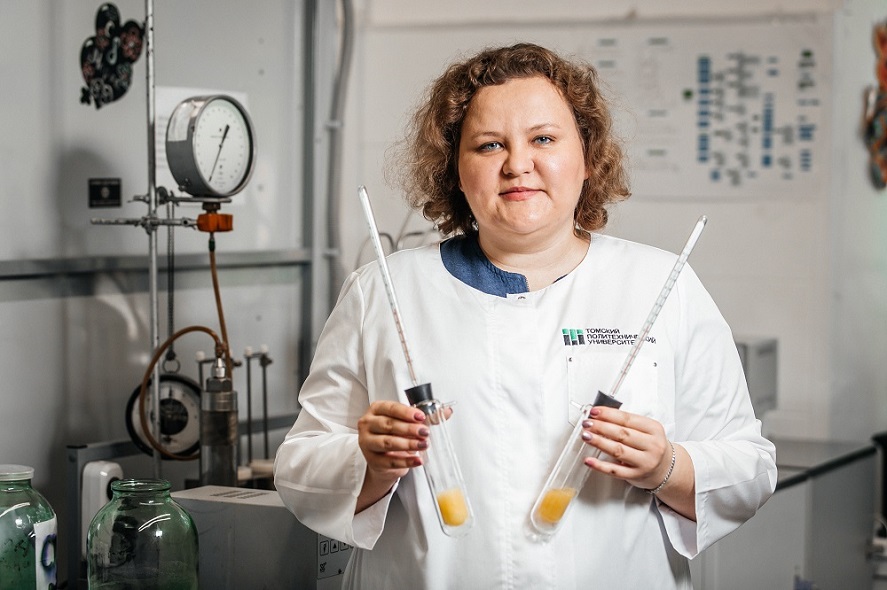
About the no-regret research project
I consider myself lucky: I am engaged in a topic that most people understand - everyone fuels their cars. And everyone understands that the research related to traditional hydrocarbon fuels is promising and much needed. This is one of the reasons why new people join our team every year.
About the core science team and more
I quite quickly realized that I want my own team. Today, science can not be done alone. The time of easy discoveries ended in the XVIII century. Now, to make a breakthrough, you need to work with a large team. At the same time, tasks in science are often hierarchical. A third-year student, for example, is unlikely to write an article for a top rated journal. But they can conduct a simple experiment and thereby make a small but important contribution to a large common cause.
I started working with students in a very short time. Then I recruited postgraduate students, they are the core of our scientific team. Then they came up with the subjects of their research and they attracted more students. Things unfolded gradually, and the team got even more projects.
About goodbyes as a norm of life
The team is constantly renewed, and this change means that we develop. At the beginning of each academic year, 10-15 people join us. And at the end of each academic year, someone inevitably leaves the team: they graduate from the university, find jobs, or, more rarely, move to another scientific groups. Roughly, out of ten people, one or two remain in the team. These are the people who decide to do science.
Is this situation sad? No. We are an engineering university and it is only logical that our graduates want to work in their respective industries. Today, about 30 of our graduates are employed by various oil and gas companies, and we keep in touch with them. This gives us the opportunity to run joint projects with industrial partners in the field of education and research.
The unchanging backbone of our group is me and two of my former postgraduate students: Ilya Bogdanov and Andrey Altynov. Many processes and organizational issues are tied to them. This academic year, Ilya Bogdanov recruited students for his own projects, and in December he successfully defended his PhD thesis. It is an incredible feeling when your students "grow up" and become your colleagues. And this is your main pedagogical result.
About the secrets of scientific success
When we integrate new students into the team, we announce the pool of projects the team is working on. They choose what they are really interested in. At the same time, we always let them know from the start: if you are tired, overwhelmed, or bored with some direction - speak up, and we will offer something else. We’ll keep looking for something really interesting and exciting. Scientific experiments are costly in time and effort, sometimes you have to repeat the same actions many times until you get the result. Not everyone is apt to do this routine but necessary work. It is important to consider the strengths of each group member. A person may be bored with laboratory experiments, but if you offer them a different work profile, transferring them to the modeling team for example, you will get results immediately.
Besides, we are a team in every sense. Newcomers know that they are not alone, that they can rely on other team members, and get the help and support they need.
Informal communication is another key to scientific success. We have a lot of complicated and monotonous work in the laboratory. It is hard to do without a shoulder to lean on. When you sit at a cryostat and freeze samples for six hours, and then you have tea with your colleagues, you feel better. People want to work in a team of like-minded colleagues, they want to feel that unity. We always have lunch together, often play board games and go out into nature. This social life leads to "cross-pollination": newcomers learn from their seniors how to work, how to communicate in a team, how to function in a university environment, and how to define themselves professionally.
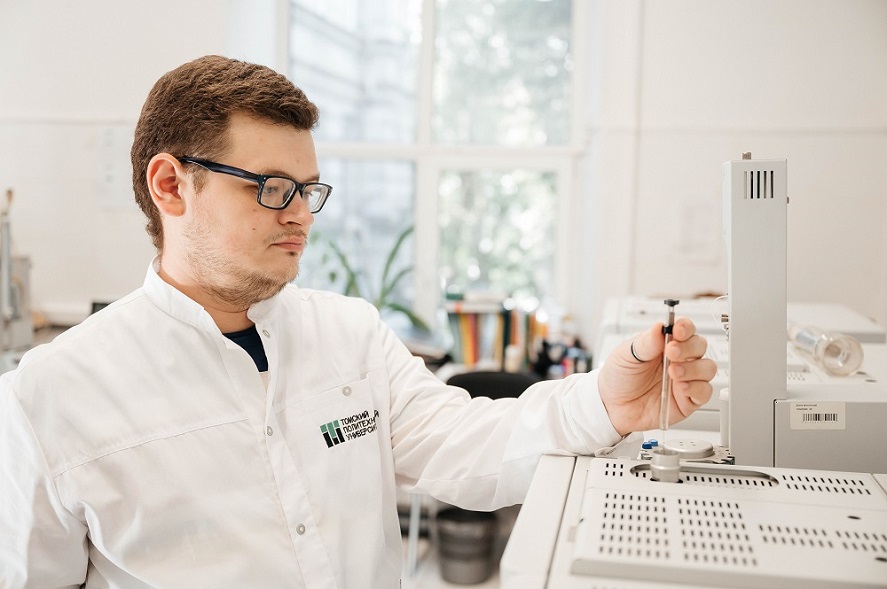
About managing a team
It is not at all necessary that team members are graduates of the same university. But it is important that they have common views, principles and values. When I was training at Skolkovo, one of the speakers said: "There are two effective tools for managing a team - fear and love." I am always in favor of love. Everything should be voluntary, by one's own desire and initiative. I am not an overseer and controller for the guys, but a friend, a helper, a counselor. The unspoken rules of our team are self-organization, self-discipline, setting and achieving one's own goals, honesty, and responsibility for one's actions.
About crazy ideas and the need to take risks
Reading scientific articles is a source of new ideas, any scientist will tell you that. Postgraduate students come up with ideas for their research. My task as a supervisor is to get the resources to implement them and help organize the work. I love Tomsk Polytechnic University because it has a lot of contacts with enterprises. Industrial partners constantly give us tasks that we transform into research projects. We always have two or three projects that are at the peak of their development and several projects that are in the process of development.
And there are always two or three seemingly crazy ideas that we test for viability. As a rule, they all come through. For example, that’s how most of our works on zeolites diesel refining have come to life. In science, it is important to be able to take risks. It is good when a scientist has a so-called gut instinct. But it should be based on knowledge, when you understand a certain chemical mechanism and start to think what else can work according to this principle.
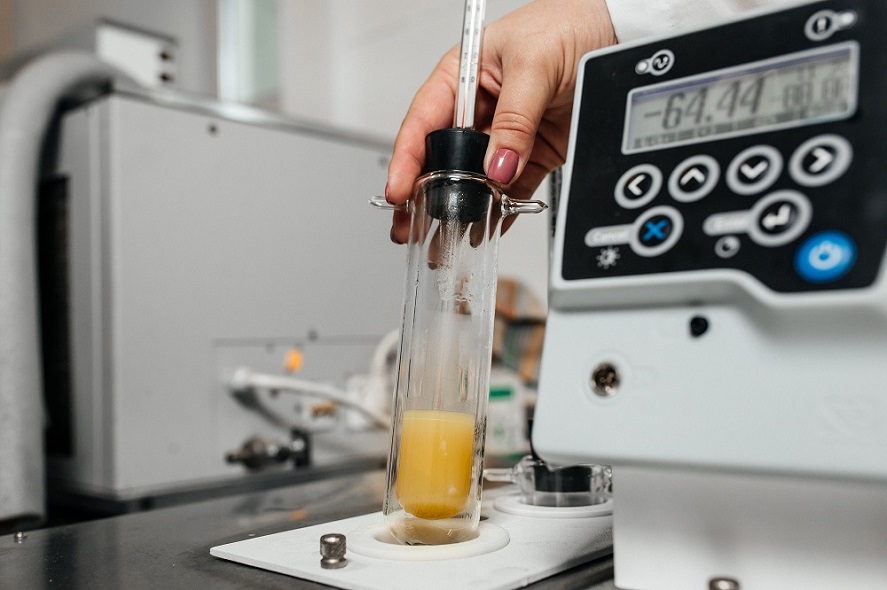
About the projects
The team is developing a pool of projects related to the production of low-fatigue fuels to be used in Arctic conditions, in particular by modifying diesel fuels.
We have a large body of research related to processing using zeolites. We were among the first to start working seriously with them, moving from the theoretical study of catalytic activity to the production of fuels that can actually be used. Today, such catalysts are gaining popularity: they are efficient, cheap, superior to metal catalysts in many respects, and in some cases they can become a substitute for imported analogues. We have research related to the zeolite processing of stable gas condensate - a by-product of natural gas treatment. We are looking for ways to turn it into fuel. Under the leadership of Ilya Bogdanov, a new group of projects is being developed for zeolites processing of vegetable oils into petroleum hydrocarbons. This will make it possible to produce environmentally friendly fuels.
Another object of our scientific interests is depressor additives for diesel fuel. These are special chemicals that improve the low-temperature properties of fuel. While the common practice includes studying the new additives, we look at the fuel composition and its influence on the additives' effect. We were the first to practice this approach. You can come up with effective additives, but there are samples on which they will never work. We are exploring ways to change the fuel composition to enhance the effect of existing additives.
We are actively conducting research on blending biodiesel fuels based on vegetable oils with traditional petroleum diesel to utilize waste and make the latter more environmentally friendly.
A series of experiments exploring the possibility of dissolving plastic in fuel is in progress. One of the goals is to determine the best proportions in order to utilize it and not deteriorate the quality of the fuel.
Many projects are supported by grants from the Russian Science Foundation.
On subjects that may raised at the Tomsk Polytechnic University for the first time
I hope to defend my doctoral thesis in 10 years. Most likely, it will explore integrated production of low-fatigue fuels.
I hope that our team will become even bigger and stronger, and there will be more people willing to “settle down” besides me. I think that the number of projects will grow, and some of the fuel production technologies we have developed will be brought to production.
Our ambitious goal is to launch projects related to the improvement of lubricant technologies and the development of additives for motor oils. Tomsk Polytechnic University has never been involved in such research. At the same time, there is quite a big demand from the industry. I hope we will succeed.
I also think that we will reach a new level in modifying zeolite catalysts to improve their properties.
We are also planning to launch joint projects with our colleagues from the Department of Organic Chemistry concerning the synthesis of compounds for the production of additives for oils and fuels.
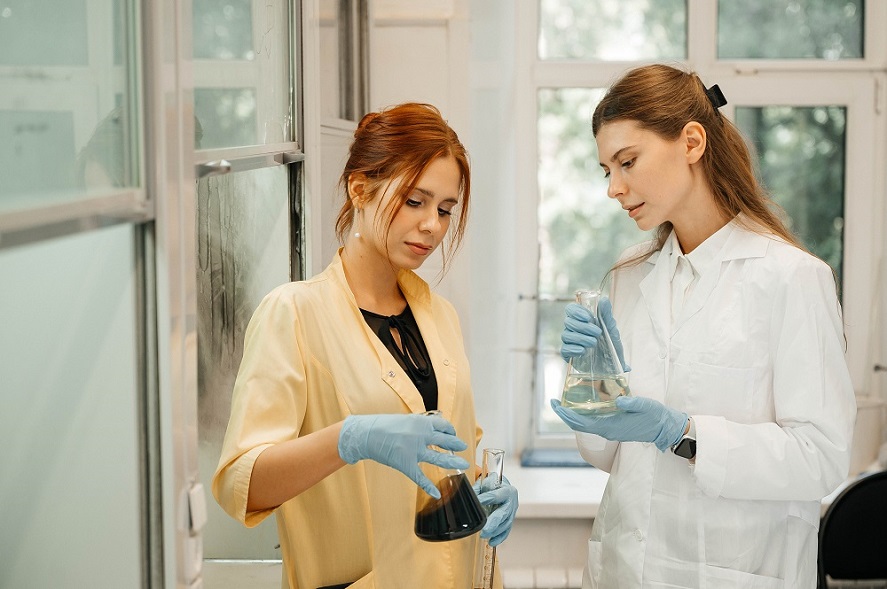
About how scientists are not boring people
On my social networks I often post content related to my scientific work and life outside the university. And I would share even more, but I don't always have the time and energy. I create such content deliberately to break the stereotype that scientists are boring geeks in greasy coats and with a narrow outlook. As my colleague Alexander Yakovlevich Pak has well pointed out, science is the most interesting thing you can devote your life to. I want to show that we live a cool, interesting and full life.
